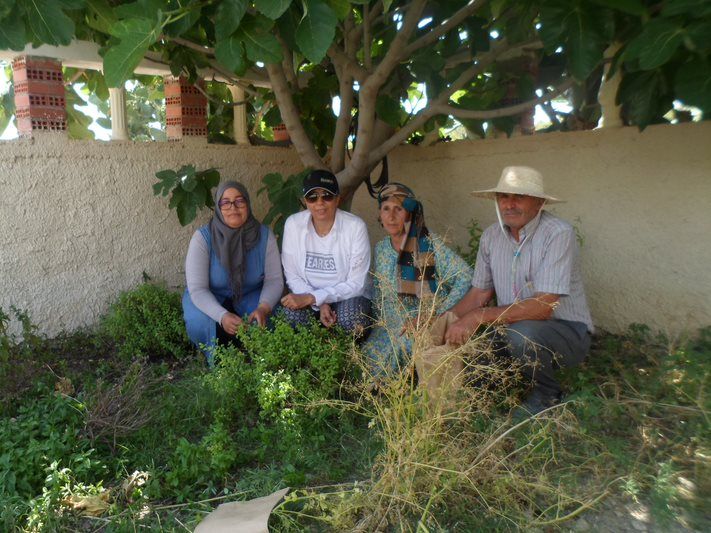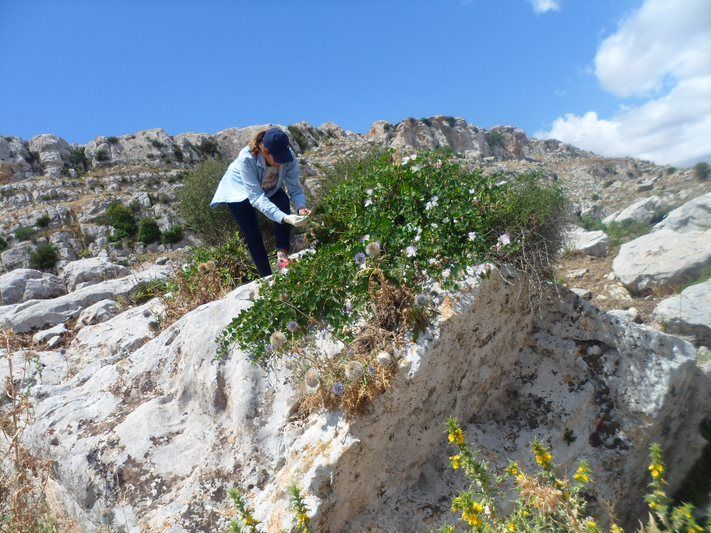What about an asparagus hand cream?
Roses, oregano, asparagus and capers…these are indigenous species in the Sicilian and Tunisian territories, they grow naturally in marginal lands, they do not require chemical inputs and do not demand much water. In addition, they have lots of nutritional and medicinal properties. Why then not grow them more profitably and sustainably? What if we transformed them and created other products? Creams, essential oils, perfumes… This is exactly what the ESPAS project is pursuing. Funded by the Italy-Tunisia ENI CBC programme, this partnership wants to revalorise autochthonous species in Sicily and Tunisia, to diversify their uses and to provide farmers and enterprises with more business opportunities. But how? Keep reading!
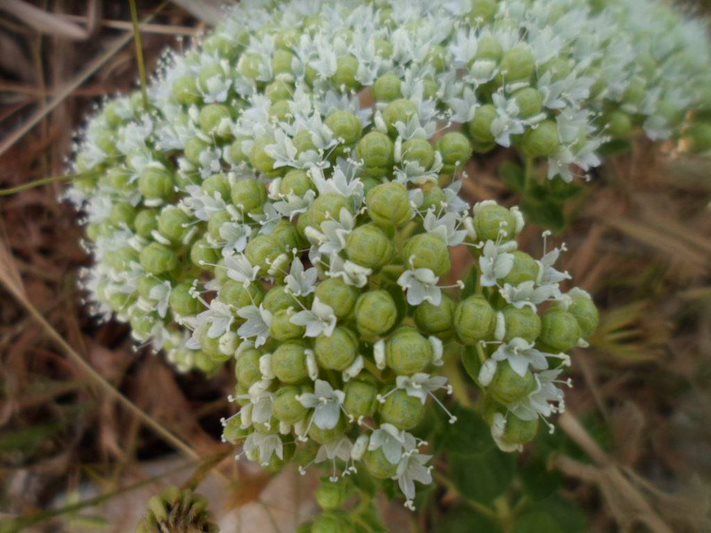 Sicily and Tunisia are well known for their typical products, like olives and oranges, almonds or grapes. While these tree-crops are quite common in the Mediterranean basin, there are other big “competitors”, less known but equally important, which can only be found in Sicilian or Tunisian regions. The ESPAS project is focusing on the revalorisation of such indigenous plant species, like oregano, asparagus or capers. “These plants grow very well on their own, they are freely accessible, no one really cultivates them”, explains Anna Bellan, ESPAS project manager from Promimpresa, the coordinator of the project based in Italy. Yet, people are not aware of their potential. The species identified by this project are
Sicily and Tunisia are well known for their typical products, like olives and oranges, almonds or grapes. While these tree-crops are quite common in the Mediterranean basin, there are other big “competitors”, less known but equally important, which can only be found in Sicilian or Tunisian regions. The ESPAS project is focusing on the revalorisation of such indigenous plant species, like oregano, asparagus or capers. “These plants grow very well on their own, they are freely accessible, no one really cultivates them”, explains Anna Bellan, ESPAS project manager from Promimpresa, the coordinator of the project based in Italy. Yet, people are not aware of their potential. The species identified by this project are 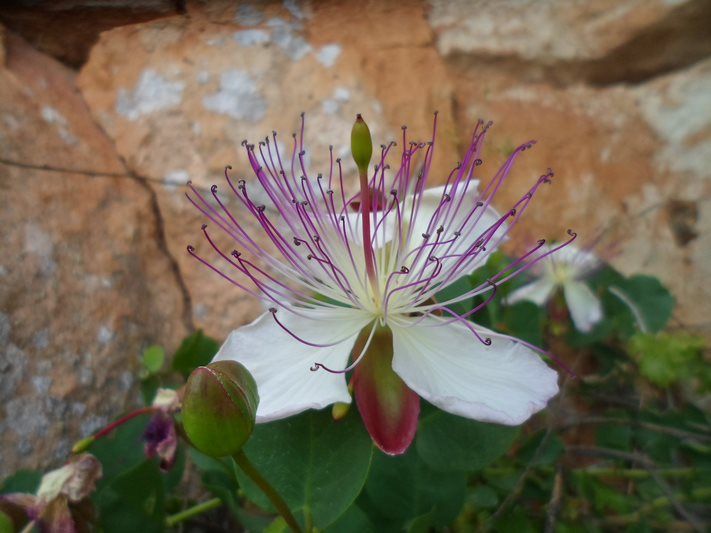 rich in bioactive compounds like vitamins, flavonoid or polyphenolsm, they have many interesting properties as antioxidant, anti-inflammatory or antimicrobial produces and hence, are of great interest not only for the agrifood sector, but also for the pharmaceutical and the cosmetic fields. “They can be exploited in a more sustainable way and transformed into new products, to bring more competitiveness on the market and to add value to our enterprises”, continues Anna. And this is the main objective of the ESPAS project: to diversify agriculture, to enhance the value of indigenous species and to offer new business opportunities in the region.
rich in bioactive compounds like vitamins, flavonoid or polyphenolsm, they have many interesting properties as antioxidant, anti-inflammatory or antimicrobial produces and hence, are of great interest not only for the agrifood sector, but also for the pharmaceutical and the cosmetic fields. “They can be exploited in a more sustainable way and transformed into new products, to bring more competitiveness on the market and to add value to our enterprises”, continues Anna. And this is the main objective of the ESPAS project: to diversify agriculture, to enhance the value of indigenous species and to offer new business opportunities in the region.
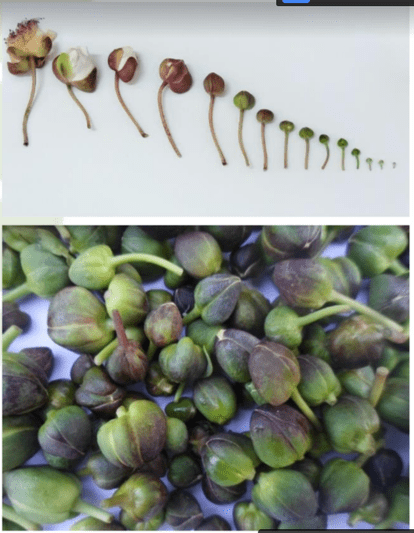 To do so, the project has first embarked on scientific research on how to optimise the cultivation of native plants. CREA DC “Consiglio per la ricerca in agricoltura e l’analisi dell’economia agraria” (ESPAS partner) on the Italian side, and the Banque Nationale de Gènes de Tunisie, in Tunisia, are working on the production of seven scientific protocols on indigenous plant species. Partners are collecting the plants, identifying the most suitable species and studying how to grow them in a more endurable way. For example, one report focuses on sustainable cultivation techniques, such as in vitro, to grow these plants at low environmental impact. Such species require very little in terms of water and fertilizers, but if their cultivation is optimized with innovative, environmentally-friendly methods, they could be further exploited from the economic perspective.
To do so, the project has first embarked on scientific research on how to optimise the cultivation of native plants. CREA DC “Consiglio per la ricerca in agricoltura e l’analisi dell’economia agraria” (ESPAS partner) on the Italian side, and the Banque Nationale de Gènes de Tunisie, in Tunisia, are working on the production of seven scientific protocols on indigenous plant species. Partners are collecting the plants, identifying the most suitable species and studying how to grow them in a more endurable way. For example, one report focuses on sustainable cultivation techniques, such as in vitro, to grow these plants at low environmental impact. Such species require very little in terms of water and fertilizers, but if their cultivation is optimized with innovative, environmentally-friendly methods, they could be further exploited from the economic perspective.
And this is the second phase of the project, led by L’Institut National de Recherches en Génie Rural, Eaux et Forêts (INRGREF), Tunisia and Promimpresa, Italy: after conducting the research, the knowledge is being transferred through training and networking. The target isfarmers who already grow these plants but marginally – so that they can do so more effectively – and entrepreneurs, small businesses and start-ups willing to either start cultivating these multipurpose species or act as intermediaries, transformation businesses or distributors. “We are conducting a thorough market analysis – explains Anna – so that we can support farmers and entrepreneurs accessing the market and expanding into new areas. If you think of oregano only as a condiment to your salad, you may not want to invest there at all, but what if it could be transformed into essential oil? Or perfume? There are many different uses apart from the most obvious ones, and that is when the investment gets more interesting”.
The ESPAS project has also created the first Italo-Tunisian network of actors from the scientific, agricultural, pharmaceutical, cosmetic and touristic sector, who are interested in benefitting and pushing forward the revalorization of these native species. The network counts already with around 40 members who meet periodically either online or in person to share information, common challenges and business opportunities. For example, in Tunisia, it is quite common to make souvenirs out of roses. In Sicily, this is very rare. However, in Sicily different types of asparagus are included in meals, while Tunisians generally use only some of the existing varieties. “You see, we can learn a lot from each other. Through this network, we do not want to reach only to the agro-alimentary sector – continues Anna – but to make something bigger, transversal to all sectors so that it will have a real economic impact”. The network will also ensure the sustainability of the project after the implementation period. “People are very responsive and excited to be part of this group. And we are trying to be open and inclusive. One of our members is “Donne in campo” an 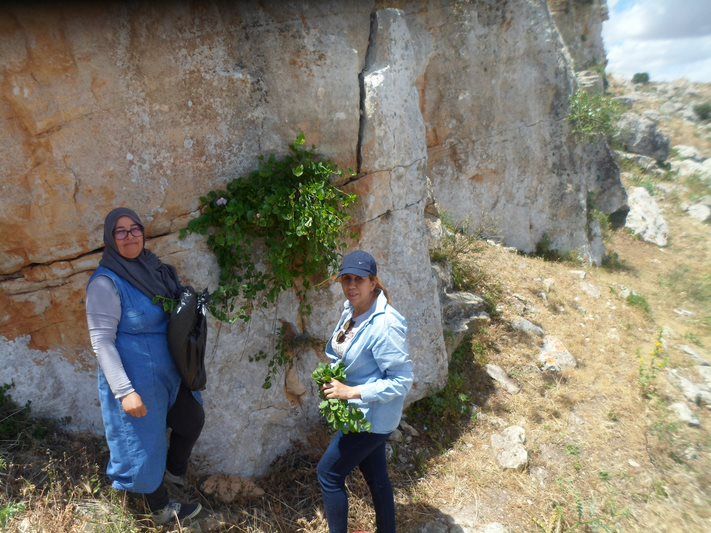 association of active women, quite young farmers who are very open to try and embark in new pathways”, continues the project manager. “Another member of the network discovered that there was one enterprise in Sicily capable of transforming oregano into essential oils: normally, this enterprise would have to ship the raw material over to the north of Italy and have it transformed there. Now, thanks to the contacts made within the network, producers are more aware of the potential of the region and of the possibilities to cooperate with neighboring territories. This implies shorter value chains, more richness and lower prices for the end-customer. And everyone is happier!”
association of active women, quite young farmers who are very open to try and embark in new pathways”, continues the project manager. “Another member of the network discovered that there was one enterprise in Sicily capable of transforming oregano into essential oils: normally, this enterprise would have to ship the raw material over to the north of Italy and have it transformed there. Now, thanks to the contacts made within the network, producers are more aware of the potential of the region and of the possibilities to cooperate with neighboring territories. This implies shorter value chains, more richness and lower prices for the end-customer. And everyone is happier!”
To increase knowledge of these products among citizens and tourists, the ESPAS team has started to collect recipes, traditional and innovative ones. In Sicily, renowned chefs will create video-tutorials showing different recipes to be widely disseminated in the whole territory, whereas in Tunisia, there will be a contest among different chefs to vote the best recipes. The Tunisian Tourism Agency and different hotels in the region are also involved in the contest.
Lastly, two final conferences will be organized, where agreements between farmers and entrepreneurs will be officially signed. All these activities are led by the Agence de developpmenet et de formation agricoles (AVFA), Tunisia, and Rocca Di CererreGeoparc, Italy. The latter will be also in charge of a social impact study. All in all, the ESPAS project aims at making a real impact across sectors and borders in the Tunisian and Sicilian regions. “What I really want is to give hope to people – concludes Anna – Our territory is rich, there are golden products and opportunities in front of our eyes, and sometimes we just do not see them”.
